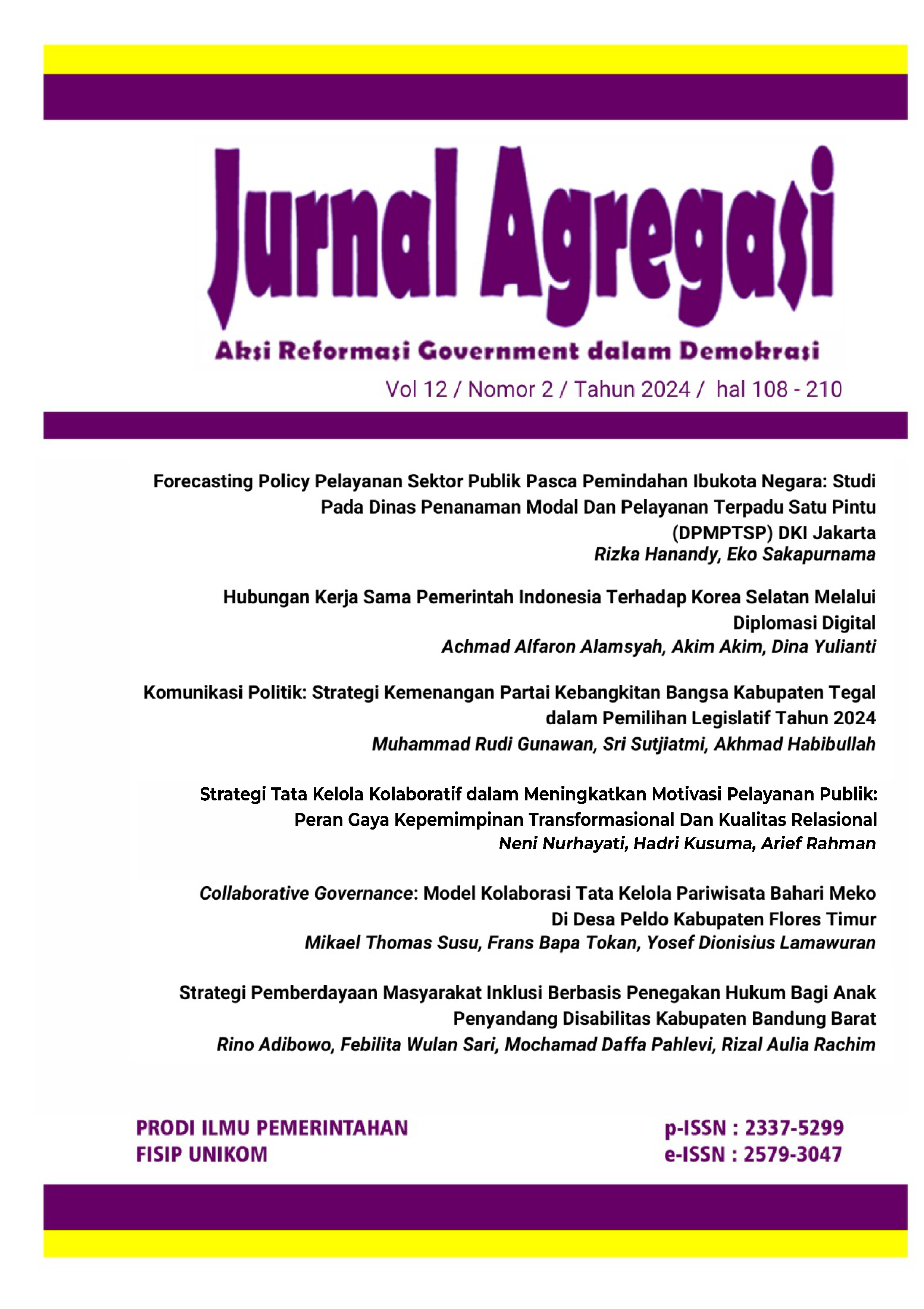Collaborative Governance: Model Kolaborasi Tata Kelola Pariwisata Bahari Meko Di Desa Peldo Kabupaten Flores Timur
COLLABORATIVE GOVERNANCE: A MODEL OF COLLABORATION IN THE GOVERNANCE OF MEKO MARITIME TOURISM IN PELDO VILLAGE, WITIHAMA SUB-DISTRICT, EAST FLORES DISTRICT
DOI:
https://doi.org/10.34010/agregasi.v12i2.13285Keywords:
Collaborative Governance; Stakeholders; Tourism; MekoAbstract
This paper aims to examine the factors inhibiting stakeholder collaboration in Meko marine tourism governance in Pledo Village, Witihama District, East Flores Regency. This study is also directed to offer the concept of Collaborative Governance from Ansell and Gash which includes indicators of face to face dialogue, trust building, commitment to process and shared understanding, as a middle way to unravel governance problems. This research uses a qualitative research method with a case study approach to analyze the problems of governance of the Meko Marine tourism area in Pledo Village, Witihama District, East Flores Regency. The results found that the failure of collaboration between stakeholders in Meko was caused by a number of factors, such as no party appearing as an initiator of collaboration, polemics over land status and mutual suspicion from stakeholders. The failure of collaboration has an impact on the lack of development to support Meko's marine tourism attractions and also raises governance problems due to limited reliable human resources. The concept of Collaborative Governance can be seen as an ideal middle ground to overcome Meko's tourism governance problems. The success of face-to-face dialog involving all actors is an entry point for the creation of mutual trust, the development of actors' commitment to collaborate and a shared understanding of the goals to be achieved from the collaboration process. This collaboration model not only contributes to solving the problem of collaboration between stakeholders or the issue of land status of the Meko marine tourism area, but more than that the concept of Collaborative Governance gives significance to the transformation of Meko into a leading tourist destination in the future.
Downloads
Downloads
Published
Issue
Section
License
This work is licensed under :

Creative Commons Attribution-NonCommercial 4.0 International License









